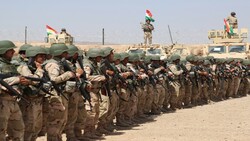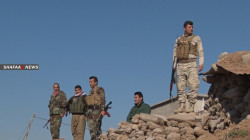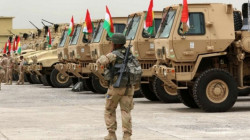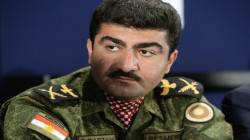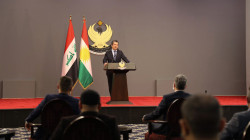Peshmerga and Iraqi forces reached an agreement to confront ISIS
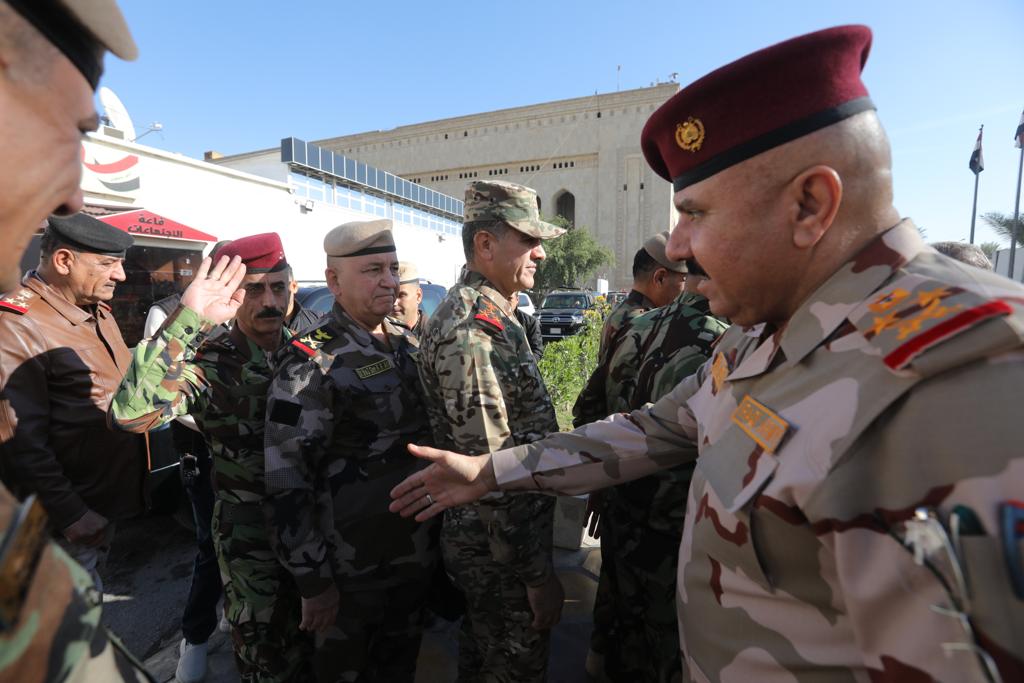
Shafaq News/ The Representative of the Kurdistan Regional Government in the Iraqi Joint Coordination Operations, Maj. Gen. Abdul Khaliq Talaat revealed details about the meeting between the Joint Operations and the Peshmerga.
“The delegation of the Ministry of Peshmerga has reached an agreement with the joint operations raise the level of coordination in two axes to confront ISIS.” He said.
Maj. Gen. Talat told Shafaq News Agency that it was agreed on the need to expand coordination between the two parties in the axes of Diyala and Kirkuk, and they would discuss the work on other axes in upcoming meetings.
Earlier today, the Peshmerga forces and the Joint Operations Command discussed plans to confront ISIS and security coordination.
A statement by the Command said, "a delegation from the Peshmerga arrived at the headquarters of the Joint Operations Command in the capital, Baghdad, to discuss and coordinate security plans in areas of common interest and develop new plans to confront terrorist attacks."
He added, "The Deputy Commander of Joint Operations, Lieutenant-General Abdul Amir Al-Shammari discussed ways to limit ISIS attacks."
On Friday, ISIS militants had attacked a village in northern Iraq killed three villagers and ten of Peshmerga forces.”
The attack took place in the Makhmour region, a hotbed for the terrorist organization carrying regular attacks against Iraqi and Kurdish forces and civilians.
Makhmour is a mountainous area about 70 km southeast of Mosul and 60 km (40 miles) southwest Erbil.
Kurdistan's Prime Minister Masrour Barzani called for greater security cooperation between Iraqi Kurdish and Iraqi security forces to stop ISIS operations.
Iraqi officials and analysts have long said that ISIS exploits the lack of coordination between Baghdad and Erbil in the disputed areas to wage deadly attacks.
In 2017, Iraq declared final victory over ISIS after Iraqi forces drove its last remnants from the country, three years after the militant group captured about a third of Iraq's territory.
The war has had a devastating impact on the areas previously controlled by the militants. About 3.2 million people remain displaced.
Yet, ISIS still has sleeper cells in several Iraqi Governorates.
Recently, the terrorist organization has become more active, as sleeper cells target civilians, security forces, power transmission lines, and towers in several governorates.
The Iraqi forces and the Popular Mobilization Forces launched various operations against ISIS in different locations, which led to the killing and the arrest of many members.
